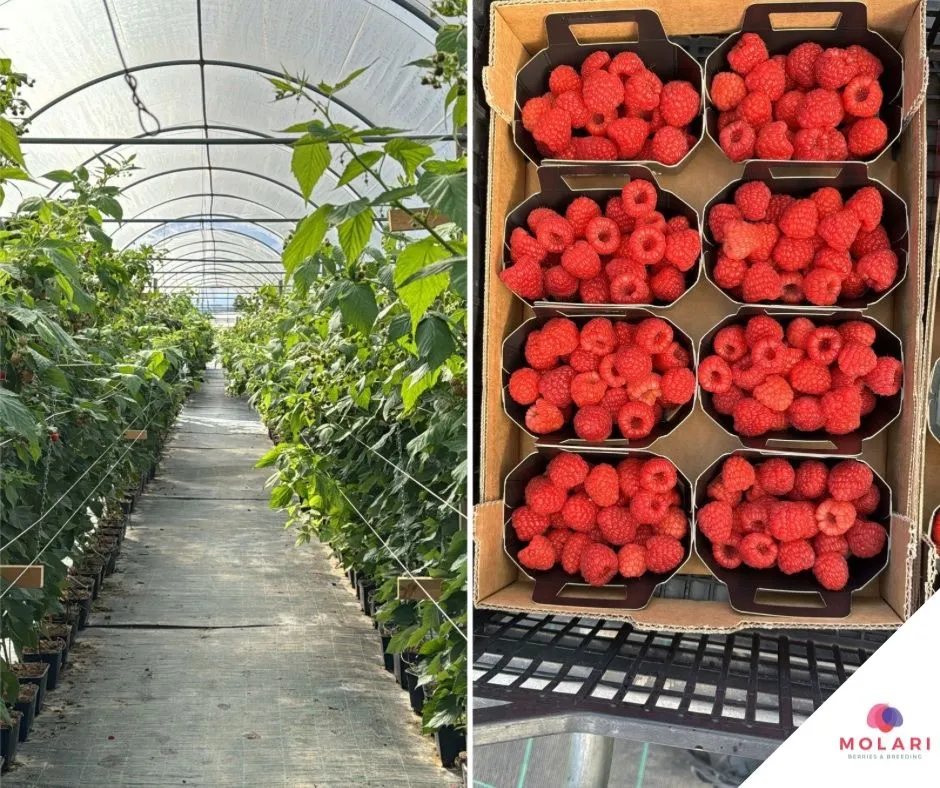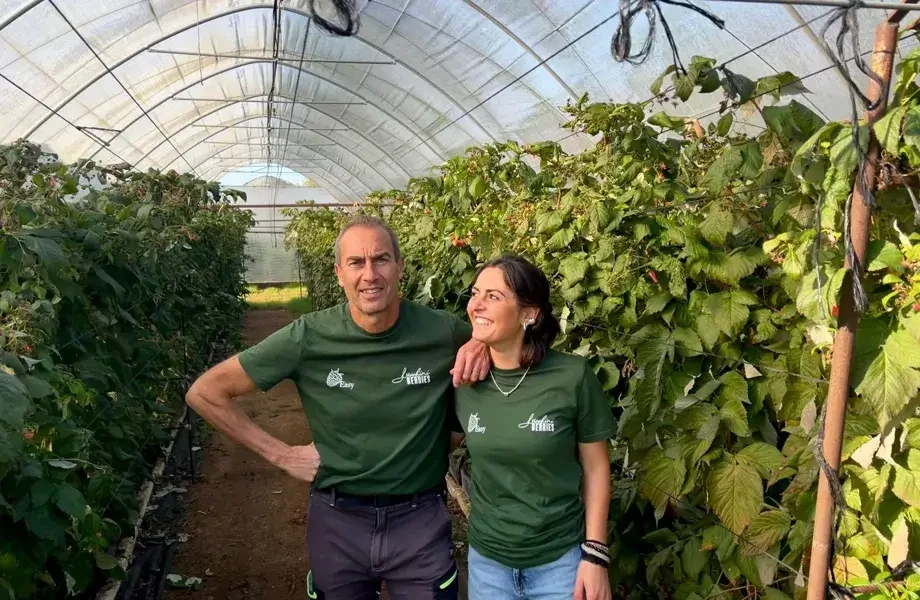Alessandro Lucchini, one of the pioneers in introducing berries to Italy, is now fully dedicated to the promotion of EasyRock and EasyStar raspberries, two varieties he has developed on his farm that are gaining traction in various production regions across multiple continents.
In this exclusive interview, alongside Elisa, Alessandro recounts the journey of the development of Easy raspberries for the readers of Italian Berry, a project that is rapidly gaining the interest of growers.
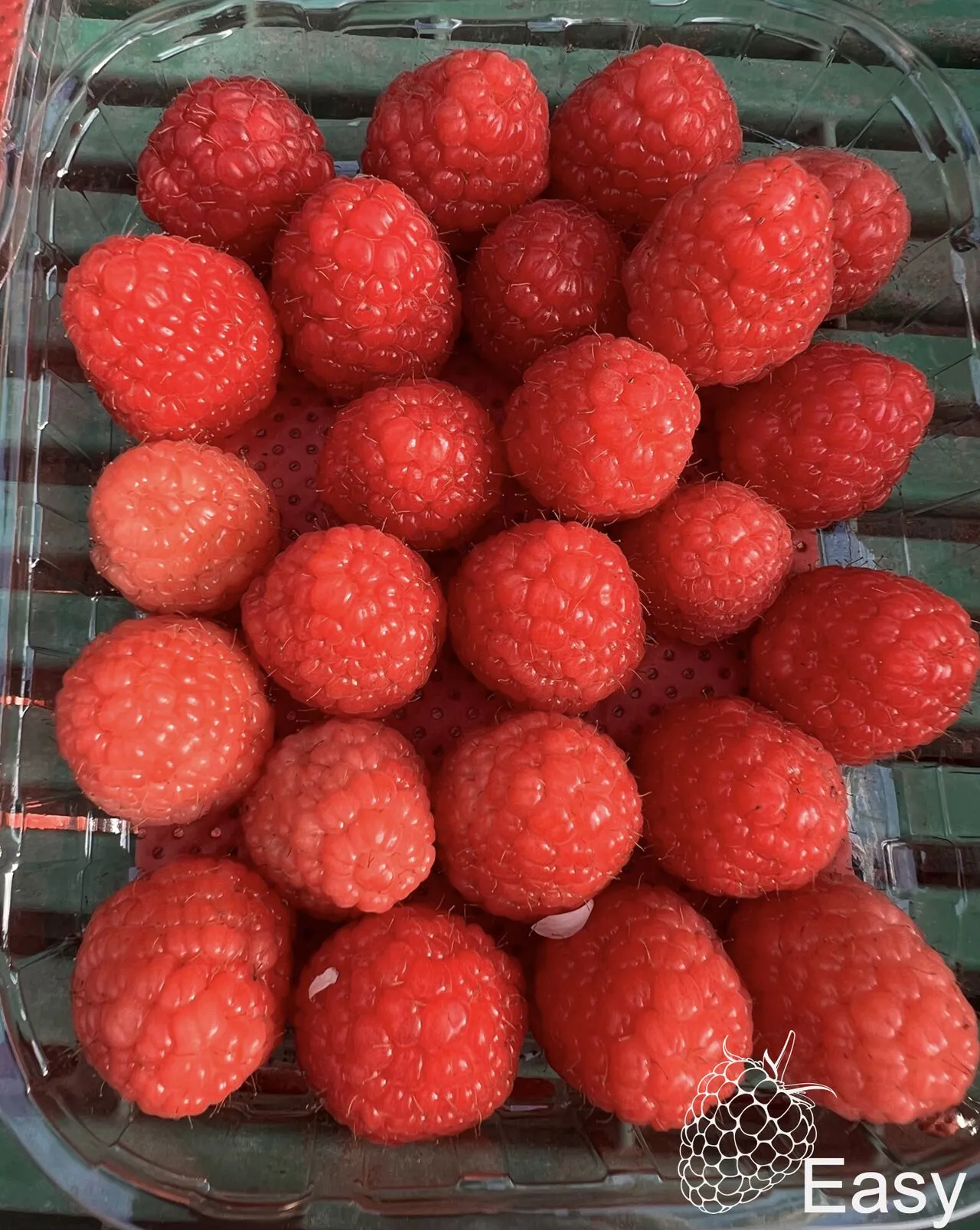 EasyRock in Morocco
EasyRock in Morocco
Alessandro, could you tell us how the Lucchini Berries project was born and what the initial objective was?
Alessandro Lucchini: We started from the need to find raspberry varieties that would adapt to our cultivation environment in the Po Valley. The major breeding programs focus on areas like Morocco and Mexico, which have different climates from ours. After 25 years of cultivation, our agronomic adaptations were no longer sufficient. Lucchini Berries was therefore created primarily to safeguard our farm.
It was not born as a breeding program for the entire world, but as a project to find solutions to two increasingly pressing problems: labor scarcity and climate change.
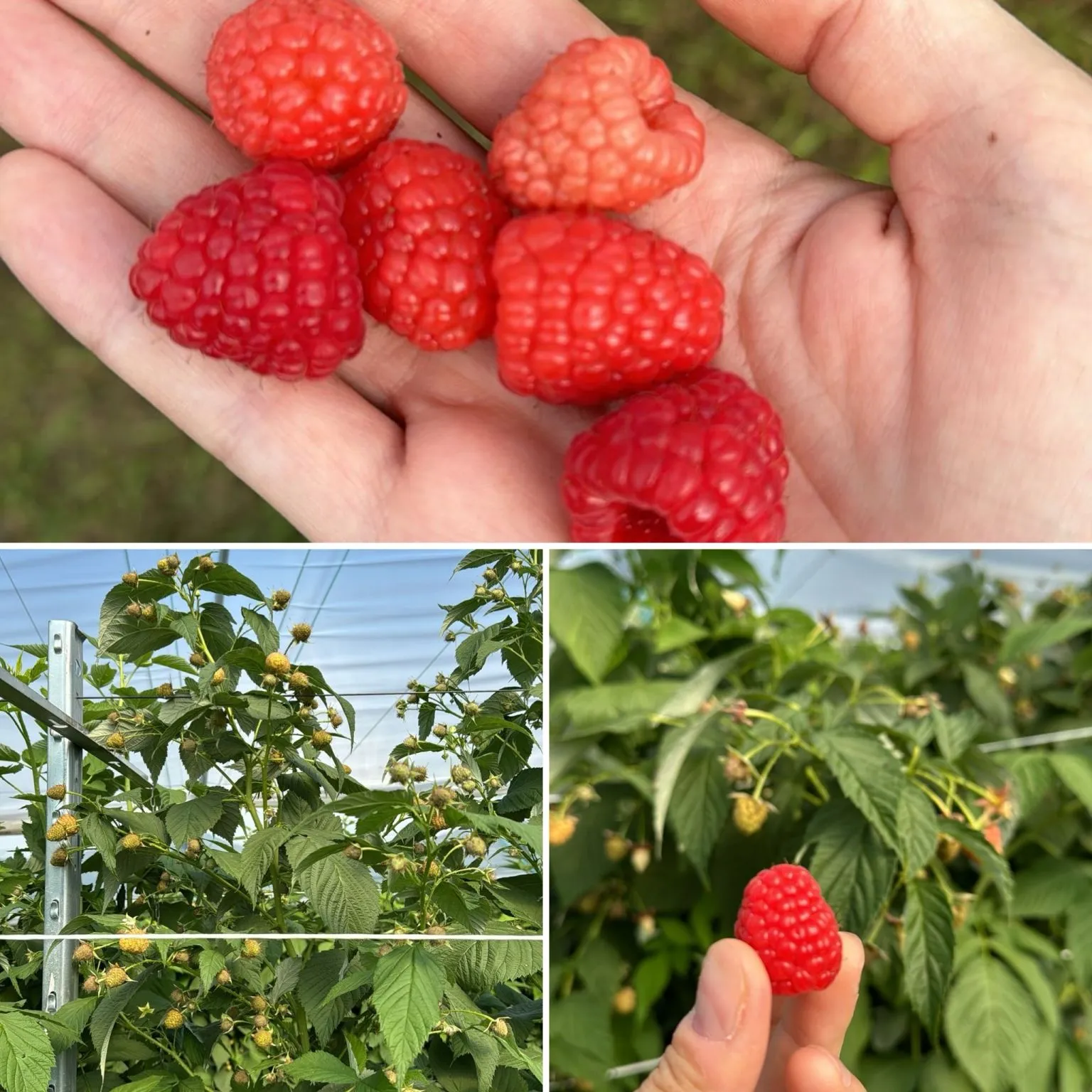 EasyRock in Poland
EasyRock in Poland
So the goal was to find varieties that were easier to harvest, manage, and grow, and that adapted to new climate conditions?
Alessandro Lucchini: Exactly. We needed varieties that were resistant to summer heat, sudden cold, humidity, and insects. From our crosses, we identified two promising varieties, EasyStar and EasyRock, and developed them agronomically on our farm to fully understand their characteristics. Thanks to my previous experience as commercial director of Aurora Fruit, I had the opportunity to test them in other production areas.
The basic idea was that a variety that could withstand difficult conditions like those of the Po Valley would perform even better in more favorable environments. And the first results, obtained in Morocco, seem to confirm this hypothesis.
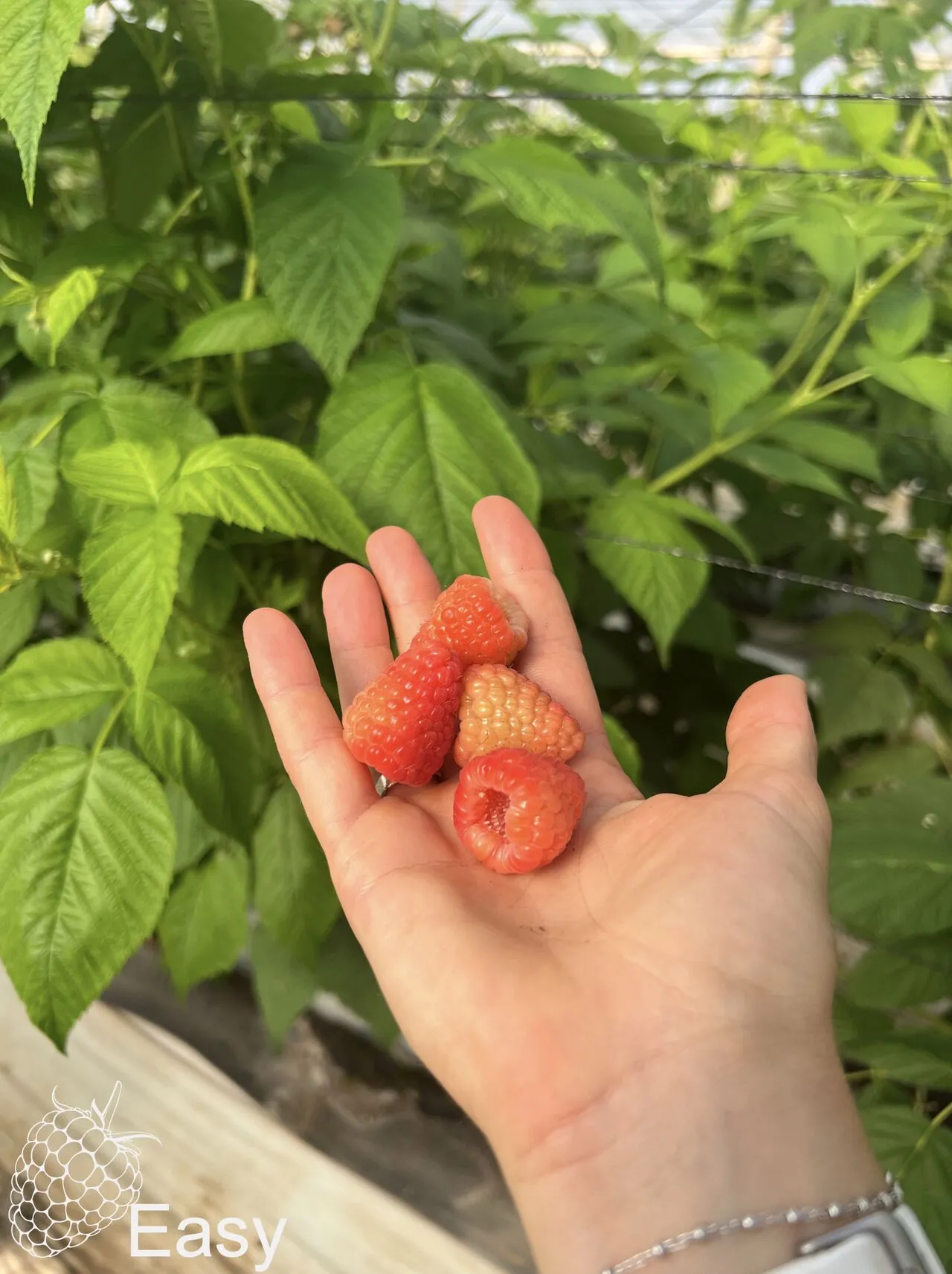 EasyRock in Morocco
EasyRock in Morocco
Elisa, what is the role of Lucchini Berries in supporting growers who choose to cultivate EasyStar and EasyRock?
Elisa Lucchini: Our role, mine and Alessandro’s, in partnership with G-berries, is to provide agronomic support to the growers. The success and speed of diffusion of a new variety depend largely on the agronomic support provided. Our goal is to assist growers and prevent them from making mistakes by transferring our five-year experience in managing these varieties.
What are the main challenges of these varieties and how do they complement each other?
Elisa Lucchini: EasyStar and EasyRock have very different characteristics. EasyStar is more suitable for doube cycle, while EasyRock excels in the single cycle. Both have difficulties, but they complement each other. For example, in the Agadir area in Morocco, growers are getting great results by cultivating EasyRock for an early harvest and then switching to EasyStar in the winter months when temperatures are cooler. This way, the challenges of EasyStar related to high temperatures are avoided. Also, regarding the vegetative habit, the two varieties complete each other: EasyRock allows planting densities that are not possible with EasyStar.
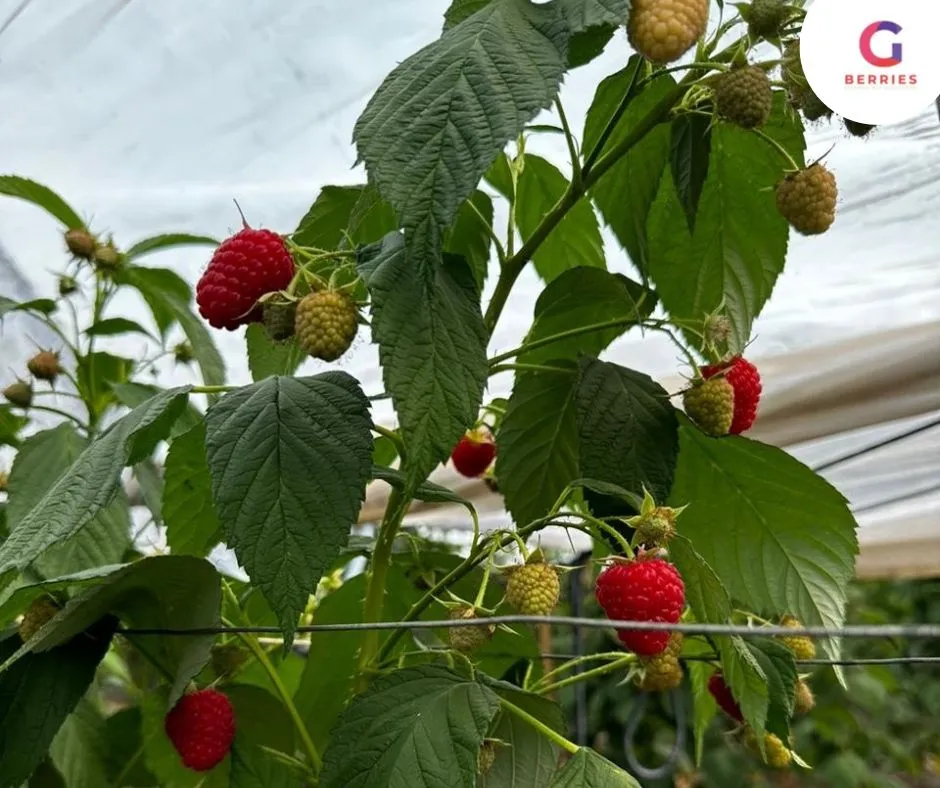 EasyRock in Mexico
EasyRock in Mexico
Moreover, the ease of picking Easy raspberries is an increasingly appreciated feature, as the challenges related to the scarcity of labor are growing worldwide.
Besides the Po Valley and Morocco, in which other areas are EasyStar and EasyRock grown?
Alessandro Lucchini: In Italy, EasyStar is achieving good results in Calabria, where about 8 hectares have been invested. Abroad, our varieties are present in Spain, Portugal, and Mexico. In Poland and England, the project started with some delay.
What caused these delays?
Alessandro Lucchini: Unfortunately, if a trial field on a farm doesn’t work out, a whole year is lost. Last year's test in Poland didn’t give the expected results, but this year EasyRock has done very well on another farm, so the project can move forward again.
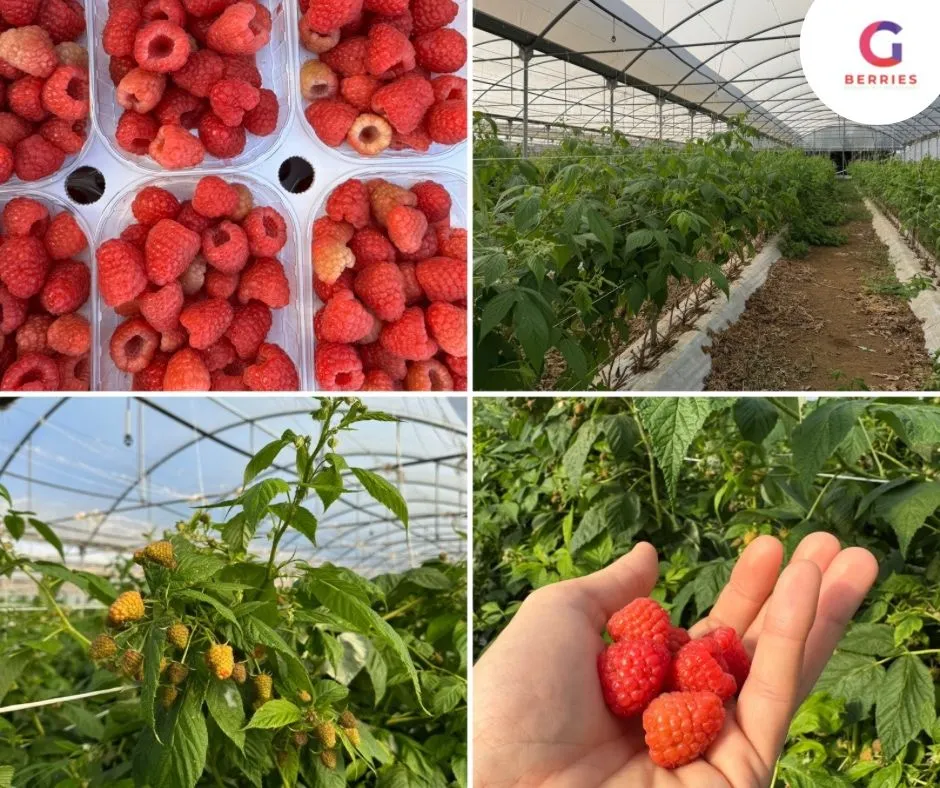
Elisa, you lived in Poland. What can you tell us about berry consumption in that country?
Elisa Lucchini: Poland is a major raspberry producer, but in recent years it has also become a major consumer. The way fruit is presented in supermarkets, especially blueberries, is much more inviting compared to Italy. The Polish consume a lot of raspberry-based syrups and processed products, for example, raspberry syrup is often mixed with alcoholic drinks. Regarding fresh consumption, blueberries are very popular in different formats, especially small cups.
Elisa, what do you like most about your work at Lucchini Berries?
Elisa Lucchini: I still have a lot to learn. This sector is complex and multifaceted. Besides the technical aspects, it’s essential to build and maintain strong human relationships. Experience is the only thing that will allow me to grow in this field. Every time I travel or visit a farm, I learn something new.
